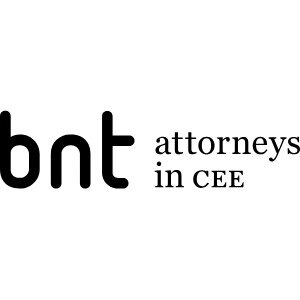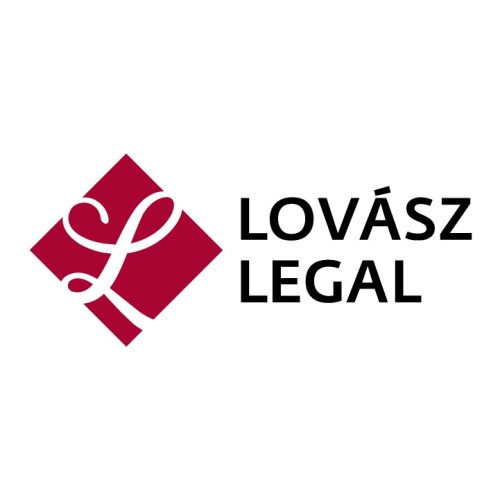Best Financial Services Regulation Lawyers in Slovakia
Share your needs with us, get contacted by law firms.
Free. Takes 2 min.
Or refine your search by selecting a city:
List of the best lawyers in Slovakia
About Financial Services Regulation Law in Slovakia
Financial Services Regulation in Slovakia is a specialized area of law that governs the conduct of financial institutions within the country. This field includes regulations on banking, investments, insurance, and other financial services. Slovakia, as a member of the European Union, aligns its financial services regulations with EU directives and regulations, ensuring that financial practices are standardized and harmonized with European standards. The primary aim of these regulations is to protect consumers, maintain fair market conditions, and promote the stability and integrity of the financial system.
Why You May Need a Lawyer
Engaging with Financial Services Regulation can be complex due to the intricate laws and rapid changes in regulatory frameworks. Here are common situations where legal assistance may be necessary:
- Compliance Issues: Businesses may require legal advice to ensure their operations comply with current regulations.
- Licensing and Authorization: Assistance in obtaining necessary licenses or confirmations from regulatory bodies.
- Dispute Resolution: Navigating conflicts with financial institutions or regulatory agencies.
- Risk Management: Advising on the development of risk management policies and practices.
- Contractual Agreements: Drafting and reviewing financial contracts to ensure legality and fairness.
Local Laws Overview
In Slovakia, financial services regulation is influenced by both national laws and EU framework laws. Key national bodies include:
- The National Bank of Slovakia: This is the central authority responsible for overseeing the banking industry, enforcing compliance, and managing financial stability.
- The Financial Market Authority: Supervises capital markets, investment services, and insurance sectors.
Key aspects of local laws include consumer protection, anti-money laundering measures, data protection protocols, and requirements for transparent reporting by financial institutions.
Frequently Asked Questions
What are the primary regulatory bodies overseeing financial services in Slovakia?
The primary regulatory bodies are the National Bank of Slovakia and the Financial Market Authority. They oversee banking, capital markets, and insurance sectors.
How does EU membership affect financial regulations in Slovakia?
As part of the EU, Slovakia's financial services regulations are harmonized with EU directives and regulations to ensure consistency and standardization across member states.
What are the penalties for non-compliance with financial regulations in Slovakia?
Penalties can include fines, suspension of licenses, or even criminal proceedings, depending on the severity of the non-compliance.
Are international financial service providers subject to the same regulations?
Yes, international providers must adhere to Slovak regulations when operating within the country or offering services to Slovak residents.
How can a lawyer assist in securing a financial services license in Slovakia?
A lawyer can help navigate the complex application processes, ensure compliance with all regulatory requirements, and liaise with the relevant authorities.
What should companies consider when implementing risk management practices in Slovakia?
Companies should consider local laws, EU directives, and best practices to ensure they meet all regulatory requirements and effectively manage potential risks.
Are there specific laws related to digital financial services in Slovakia?
Yes, digital financial services must comply with specific regulations aimed at cybersecurity, data protection, and consumer protection.
How does Slovakia address money laundering issues in financial services?
Slovakia has strict anti-money laundering laws in place, which require diligent reporting and monitoring of suspicious activities by financial institutions.
What are the consumer rights in relation to financial services in Slovakia?
Consumers in Slovakia have rights to fair treatment, transparency, access to information, and recourse in case of disputes or grievances.
Is legal representation mandatory in financial services disputes?
While not mandatory, legal representation is highly advised to navigate the complexities of disputes effectively and achieve a favorable outcome.
Additional Resources
For further guidance on financial services regulation, consider reaching out to these resources:
- The National Bank of Slovakia
- The Ministry of Finance of the Slovak Republic
- The Financial Market Authority
- European Commission’s Directorate-General for Financial Stability, Financial Services, and Capital Markets Union
Next Steps
If you're seeking legal assistance in Financial Services Regulation in Slovakia, consider the following steps:
- Consultation: Schedule a consultation with a legal professional specializing in financial services regulation.
- Documentation: Gather and organize all relevant documents related to your case or inquiry.
- Research: Conduct preliminary research to understand your situation and potential legal pathways.
- Follow-up: Maintain regular communication with your legal advisor to stay informed and involved in the process.
Lawzana helps you find the best lawyers and law firms in Slovakia through a curated and pre-screened list of qualified legal professionals. Our platform offers rankings and detailed profiles of attorneys and law firms, allowing you to compare based on practice areas, including Financial Services Regulation, experience, and client feedback.
Each profile includes a description of the firm's areas of practice, client reviews, team members and partners, year of establishment, spoken languages, office locations, contact information, social media presence, and any published articles or resources. Most firms on our platform speak English and are experienced in both local and international legal matters.
Get a quote from top-rated law firms in Slovakia — quickly, securely, and without unnecessary hassle.
Disclaimer:
The information provided on this page is for general informational purposes only and does not constitute legal advice. While we strive to ensure the accuracy and relevance of the content, legal information may change over time, and interpretations of the law can vary. You should always consult with a qualified legal professional for advice specific to your situation.
We disclaim all liability for actions taken or not taken based on the content of this page. If you believe any information is incorrect or outdated, please contact us, and we will review and update it where appropriate.
Browse financial services regulation law firms by city in Slovakia
Refine your search by selecting a city.

















